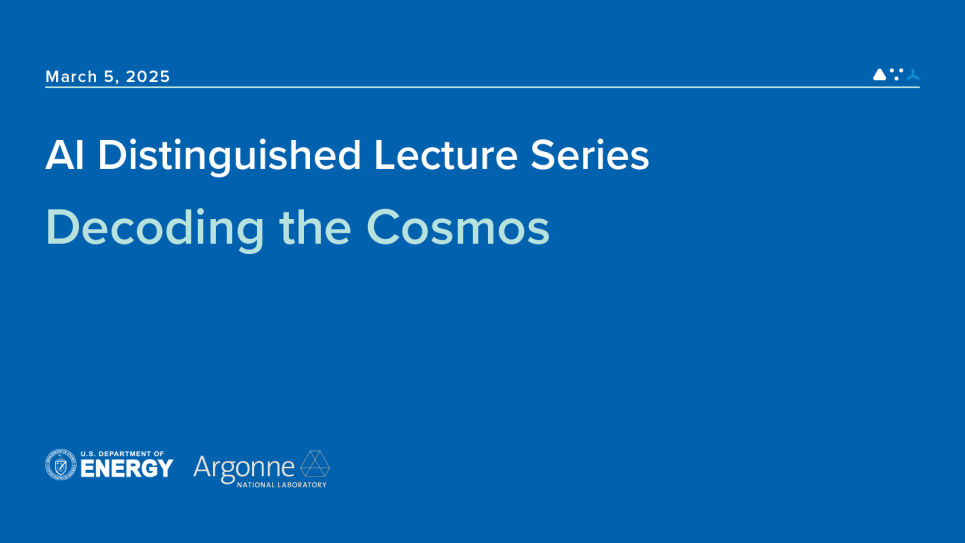
Decoding the Cosmos
I will present a perspective that explainability — model interrogation and validation rooted in domain knowledge — is a more important desideratum in fundamental science than interpretability in its strict meaning. In order to illustrate this point, I will draw on our recent work on pop-cosmos: a forward modelling framework for photometric galaxy survey data, where galaxies are modelled as draws from a population prior distribution over redshift, mass, dust properties, metallicity, and star formation history. After showing how the model is composed in terms of a diffusion model population prior and calibrated using simulation-based optimal-transport optimisation, I will discuss how to view this type of approach from a hierarchical Bayesian perspective. I will showcase the parallels between validating this type of model and standard practices in validating any complex physics-based parametric model in the field.
Bio: Hiranya Peiris holds the Professorship of Astrophysics (1909) at the Institute of Astronomy, University of Cambridge. After obtaining her undergraduate degree at Cambridge, Professor Peiris completed her PhD at Princeton. She was a Hubble Fellow at Chicago before returning to Cambridge as a STFC Halliday Fellow. She was then appointed to a lectureship (2009) and Professorship (2015) at UCL. She was Director of the Oskar Klein Centre in Stockholm (2016-2022) and Director of the UCL Cosmoparticle Initiative (2016-2023). Professor Peiris conducts interdisciplinary research based on extracting fundamental physics from cosmological data. She has led analyses of cosmological survey data from multiple major international facilities, as well as making major contributions to theoretical cosmology and statistical astronomy. Her work has been recognised by awards such as the IOP Fred Hoyle Medal and Prize (2018), the Max Born Prize of the German Physical Society and the IOP (2021), and the Eddington Medal of the Royal Astronomical Society (2021). Her contributions to survey cosmology have been recognised through a share of the Gruber Cosmology Prize (2012) and the Breakthrough Prize in Fundamental Physics (2018), both awarded to the WMAP Science Team. She was elected a member of the Royal Swedish Academy of Sciences in 2022.